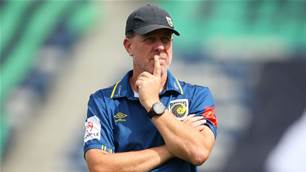A global survey by FIFPro has found that 22% of female footballers interviewed reported suffering depression symptoms, as opposed to 13% of men.
Australian WSL coach, Tanya Oxtoby, who was a government psychologist while playing in the W-League, before making her coaching break at Bristol City, says that greater support networks are invaluable.
"Linking in with the support network around them in a subtle way is probably the better avenue to go for," she told BBC Sport.
The FIFPro study was conducted on 1,602 professional footballers between 22nd March and 14th April 2020, after the COVID19 pandemic ground global sports to a halt.
22% of female players from 468 interviewed, reported depression related symptoms, compared with 13% of men from 1,134 interviewees.
While the numbers relating to anxiety symptoms were much closer between the genders, the significant difference in female footballers is likely due to the precarious situation many female athletes now find themselves in.
Before the COVID19 pandemic, both genders registered numbers in the single digits.
"Sometimes just acknowledging that they're struggling a little bit," Oxtoby continued. "Even without labelling it, is all they need - just so they're aware that you're aware."
Related Articles

Champion A-League coach set to join Premier League giants

Emerging Socceroos star set to sign for MLS club













